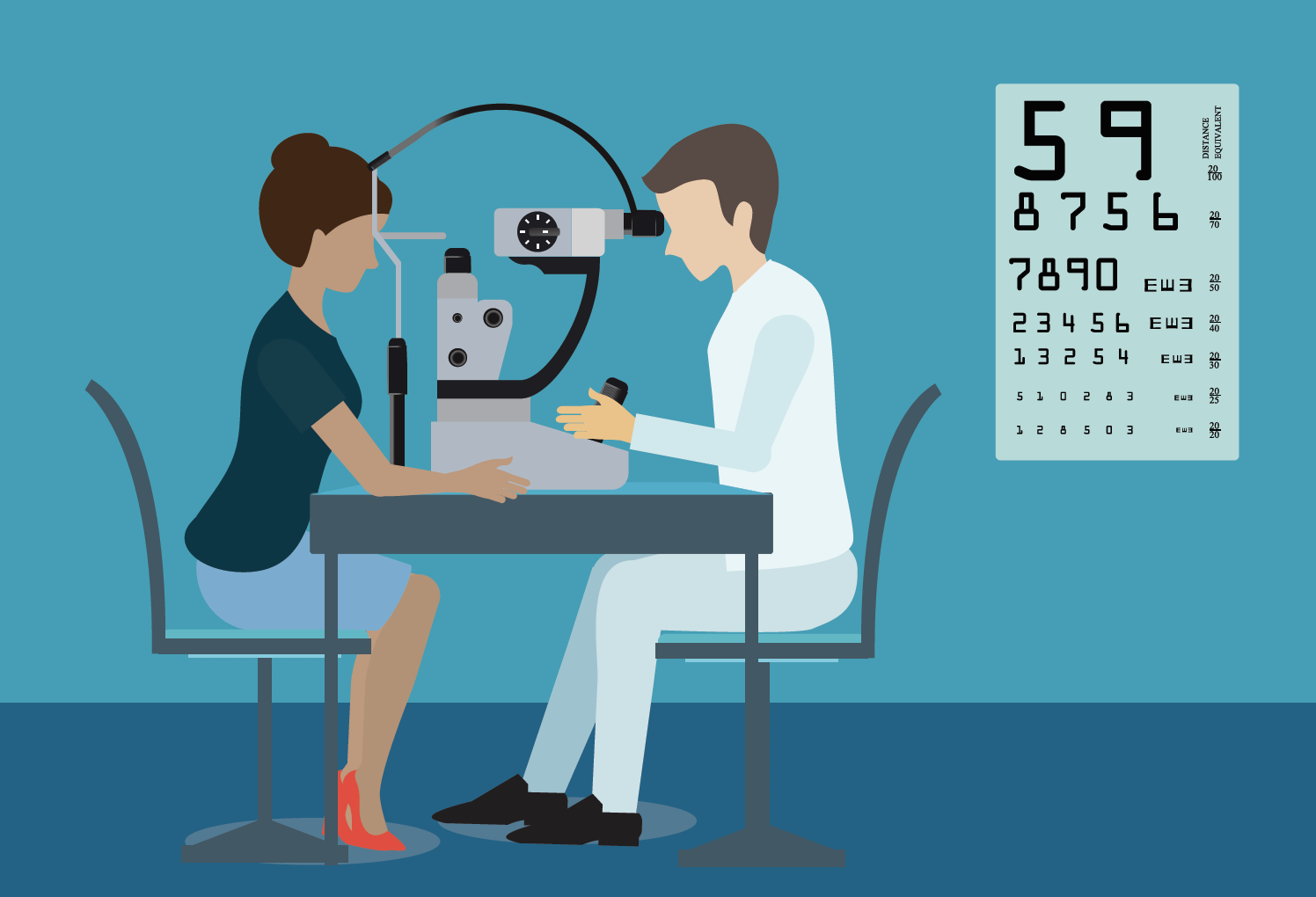With the opening of Ketchum Health in Anaheim Hills, Marshall B. Ketchum University came to feature a flagship health care facility through which it could continue to provide quality care to the surrounding community as well as clinical training for MBKU students. And while Ketchum Health draws well-deserved accolades, MBKU extends its influence into a number of other communities in profound ways through its various community clinics. “Our community clinics provide comprehensive and affordable health care at a very high level of quality,” says Dr. Mark Nakano, Associate Dean of Clinics at MBKU and Ketchum Health.
Community Experience
Dr. Nakano is very familiar with the quality of care at Ketchum clinics, because prior to becoming Associate Dean, he was the clinic director of the University Eye Center in Los Angeles. His stewardship of that clinic was very successful, and it gave him the opportunity to fulfill a passion of his, which is to provide vision care to underrepresented communities.
As the Director of the clinics, his passion has an even wider reach, as he oversees Ketchum-affiliated health clinics in Tustin and South Central Los Angeles, the Vision Clinic at the Boys and Girls Clubs of Garden Grove, and the Low Vision Clinic at the Blind Children’s Learning Center (which itself is not a community clinic, but a full-fledged school for children with vision impairments).
Four Clinics Serving The Community
Clinics like the one in Tustin are Federally Qualified Health Centers (FQHCs), which means that they provide primary care services to underserved areas and they do not turn anyone away for lack of insurance or ability to pay. The Tustin clinic’s vision services were presided over by Dr. Raman Bhakri, former Assistant Professor at SCCO. The clinic operates at the Village of Hope transitional housing campus in Tustin and Dr. Bhakri has story after story of how vision care is transforming people’s lives there. “We make a huge difference,” he says. “Many of our patients have never had an eye exam. “They’ve been struggling or getting by with poor vision their entire lives. Helping someone read a book again, or see so that they can go back to school or work, is very rewarding.”
Dr. Benedicte Gonzalez provides care at the South Central Family Health Center, a large clinic on the corner of Vernon and South Central avenues where members of that community are able to receive comprehensive health services, including vision care. The numerous health care providers all located in one place is one of the key advantages for training the Ketchum students who rotate through the clinic, according to Dr. Gonzalez, "The patients that they see at these clinics are primarily low income, uninsured, and may not have had access to health care for a good portion of their lives. So when they present for a comprehensive eye exam they come with multiple chronic conditions (MCCs), and unfortunately most will be uncontrolled. By having access to all the other providers in the clinic, students can start a conversation with the other providers to better assist their patients. We are able to see results in real time for lab work; CBC with differentials, HbA1c, thyroid-stimulating hormone (TSH), C-reactive protein (CRP), erythrocyte sedimentation rate (ESR), clotting factors to name a few, and make referrals for imaging such as MRI/CT scans or to other specialities such as ophthalmology, oculoplastics, dermatology, etc., when appropriate.”
At the Boys and Girls Club of Garden Grove, the focus is on pediatric vision care. It’s the only Boys and Girls Club in the nation with a full medical center. The vision clinic is run by Dr. Katherine Takaki, who retired from full-time private practice four years ago and whom Dr. Nakano entrusted to increase the number of children the clinic was reaching. “The Garden Grove School District is very conscientious about sending children here who don’t pass the vision screening,” says Dr. Takaki. “We see a lot of kids that require correction, or glasses with high prescriptions. “Our goal is to develop caring and compassionate health care providers.” Many don’t have access to vision care, or they lost or broke the one pair of glasses they have.” Dr. Takaki will also take a group of MBKU students to back-to-school events where they are able to provide vision screening for many children at a time. The goal is simple: to make sure there is no child in the community without eye care.
Children are at the center of Dr. Catherine Heyman’s work as well. At the Blind Children’s Learning Center, she sees young patients who are legally blind or who have other serious conditions. This is one reason why many optometrists seeking a residency vie for a position with Dr. Heyman. They know that in addition to serving a population that has always been historically overlooked, they will see pathologies in children they will likely not see for the rest of their careers. “Residents seeing these special young children have to rely on their objective testing and use everything they’ve learned to properly treat the patient,” says Dr. Heyman. “In many cases the patient is an infant who cannot respond, let alone indicate which of two lenses is "clearer." Diagnostic capabilities and treatment options have evolved and now these children, through specialized education and intervention, can have opportunities for independent lives.”
A Common Fiber
The impact that working in the clinics has on residents or MBKU students who are able to rotate through the clinics is an enormous part of their importance. Dr. Nakano sees the experience as essential to making them good doctors of optometry. “Our goal is to develop caring and compassionate health care providers,” he says. “You have to work with people, not judge them. Give them the best care possible and treat them with dignity and respect. I always say, ‘There’s a common fiber that we have as humans.’ At Ketchum, we want our doctors to tap into that.”

